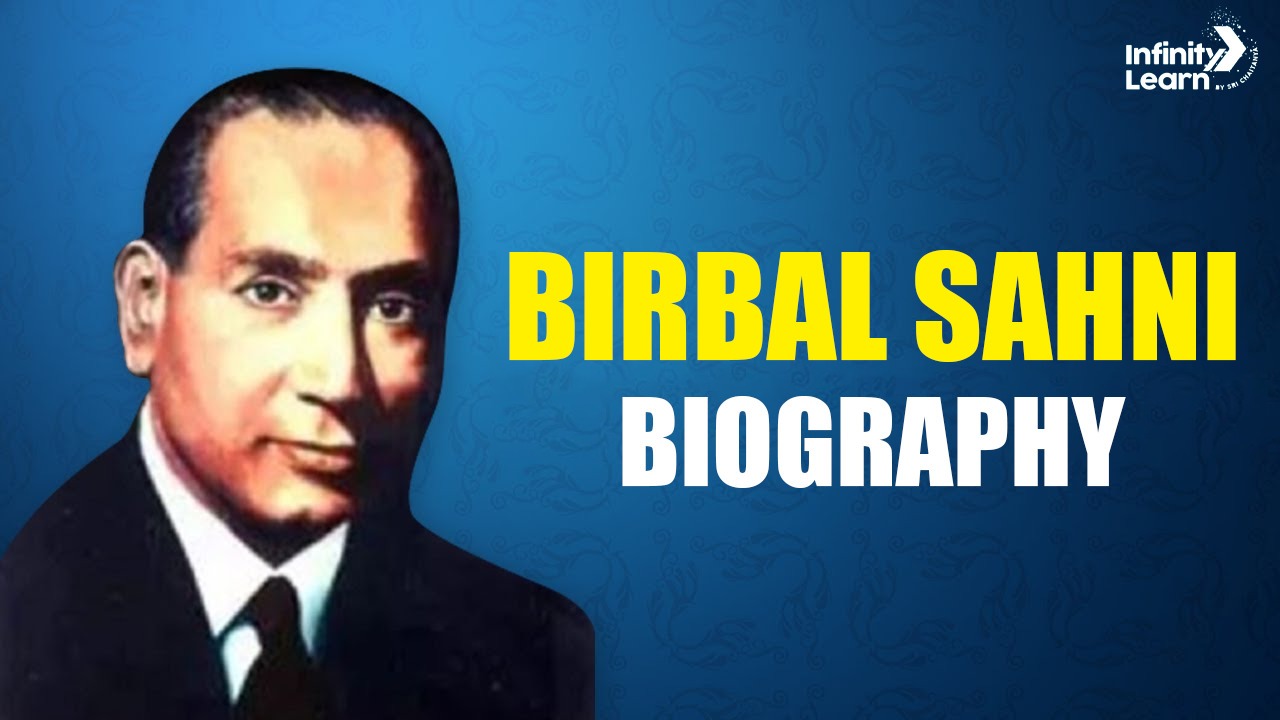Table of Contents
Birbal Sahni (14 November 1891 – 10 April 1949) was an Indian scientist known for his work in paleobotany, studying plant fossils from the Indian subcontinent. He also had interests in geology and archaeology. In 1946, he established the Birbal Sahni Institute of Palaeobotany in Lucknow. Sahni’s significant contributions include research on India’s fossil plants and plant evolution. He played a key role in promoting science education in India and served as President of the National Academy of Sciences, India, and Honorary President of the International Botanical Congress in Stockholm.

Birbal Sahni Biography: Early Life
Birbal Sahni received his early education in Lahore, attending the Mission and Central Model schools, and later the Government College. A brilliant student, he excelled academically, notably securing the top position in Sanskrit during Matriculation and ranking high in intermediate Science. He graduated from Punjab University (now in Pakistan) in 1911 and then went to Cambridge University for higher studies. He earned his B.Sc. from London University and started his research under Sir Albert Charles Seward, whom he considered a mentor. In 1913, he achieved first class in Part I of the Natural Sciences Tripos and completed Part II in 1915. By 1919, he was awarded a Doctor of Science degree for his research in palaeobotany by London University. He also revised Lawson’s textbook of botany on the advice of his teacher.
Birbal Sahni Biography: Personal Interests
Birbal Sahni had a great passion for outdoor life and trekking. He cherished his journeys through the Himalayas, such as Pathankot to the Rohtang Pass and Kalka to Chini, among others. These treks provided him with broad perspectives, allowing him to view paleobotanical and geological problems comprehensively.
Birbal Sahni Biography: Marriage and Personal Life
In the same year he joined Lucknow University, Birbal Sahni married Savitri, the daughter of Sundar Das Suri. Savitri was a significant source of encouragement and strength for him. After his premature death, she fulfilled his dream of establishing an Institute of Palaeobotany.
Birbal Sahni Biography: Professional Life
Sahni began his education at the Mission and Central Model School Lahore, continued at Government College University, Lahore, and Punjab University. He then went to England, where he graduated from Emmanuel College, Cambridge, in 1914, and earned a D.Sc. from the University of London in 1919.
Early in his career, Sahni worked with Professor Seward on Indian Gondwana plants in England and briefly with German plant morphologist Karl Ritter von Goebel in Munich. Upon returning to India, he taught at Banaras Hindu University, Varanasi, and Punjab University before becoming the first Professor and Head of the Botany Department at Lucknow University in 1921.
In 1932, Sahni published his research on the Bennettitalean plant and a new type of petrified wood, Homoxylon, in Palaeontologica Indica. His work gained recognition and attracted many students, making the University a leading center for botanical and paleobotanical studies in India.
In 1946, Sahni founded The Paleobotanical Society, which later established the Institute of Palaeobotany. Sadly, just a week after Prime Minister Jawaharlal Nehru laid the foundation stone for the new building of the Institute in 1949, Sahni passed away due to a heart attack.
Birbal Sahni Biography: Awards & Recognition
In 1936, he was elected a Fellow of the Royal Society of London, the highest scientific honor in the UK. He was the fifth Indian to receive this distinction and the first botanist to do so.
Around the same time, he was awarded the Barclay Medal for scientific research and the C.R. Reddy National Prize for his work in fundamental sciences. The Numismatic Society of India honored him with the Nelson Wright Medal for his significant contributions.
He was the first Indian palaeobotanist to study the plants of India’s Gondwana region. He discovered a new group of fossil gymnosperms, which he named diphenoxylate. In the Raj Mahal hills of Bihar, he found an exciting class of fossil plants, attracting much attention with his discovery of pentoxylate. He earned several national and international awards for his pioneering research in these fields. Additionally, he extensively studied the Indus Valley Civilisation and the ancient Salt Range, now in Pakistan.
Professor Birbal Sahni established the famous Institute of Paleobotany in Lucknow with great care and detail. He passed away on April 10, 1949, at the peak of his career. In his memory, the Birbal Gold Award is regularly given to the best botanist in the country.
FAQs on Birbal Sahni Biography
What was discovered by Birbal Sahni?
Birbal Sahni was one of the first to propose a new order, the Taxales, within conifers to include the genera Taxus, Torreya, and Cephalotaxus. Another significant contribution of his was his research on the morphology of the Zygopteridaceae family.
Who is known as the father of Indian paleontology?
Birbal Sahni, a renowned paleontologist and botanist from India, is also known as the 'father of Indian paleontology.' He studied the anatomy and morphology of Paleozoic ferns and worked on fossil plants from the Indian Gondwana formations.
What is the name of Birbal Sahni's father?
Birbal Sahni's father was Prof. Ruchi Ram Sahni. Birbal was the third child of Prof. Ruchi Ram Sahni and Shrimati Ishwar Devi.
What were Birbal Sahni's hobbies?
Birbal Sahni had a deep love for science and also enjoyed several hobbies. He loved music and could play the sitar and violin. In his spare time, he enjoyed drawing, clay modeling, and playing chess.
What did Birbal Sahni found?
Birbal Sahni was a paleobotanist who studied fossilized plants of the Indian subcontinent. He is known for revising the understanding of Indian Gondwana plants and founding a new group of fossil gymnosperms called the Pentoxylales.








